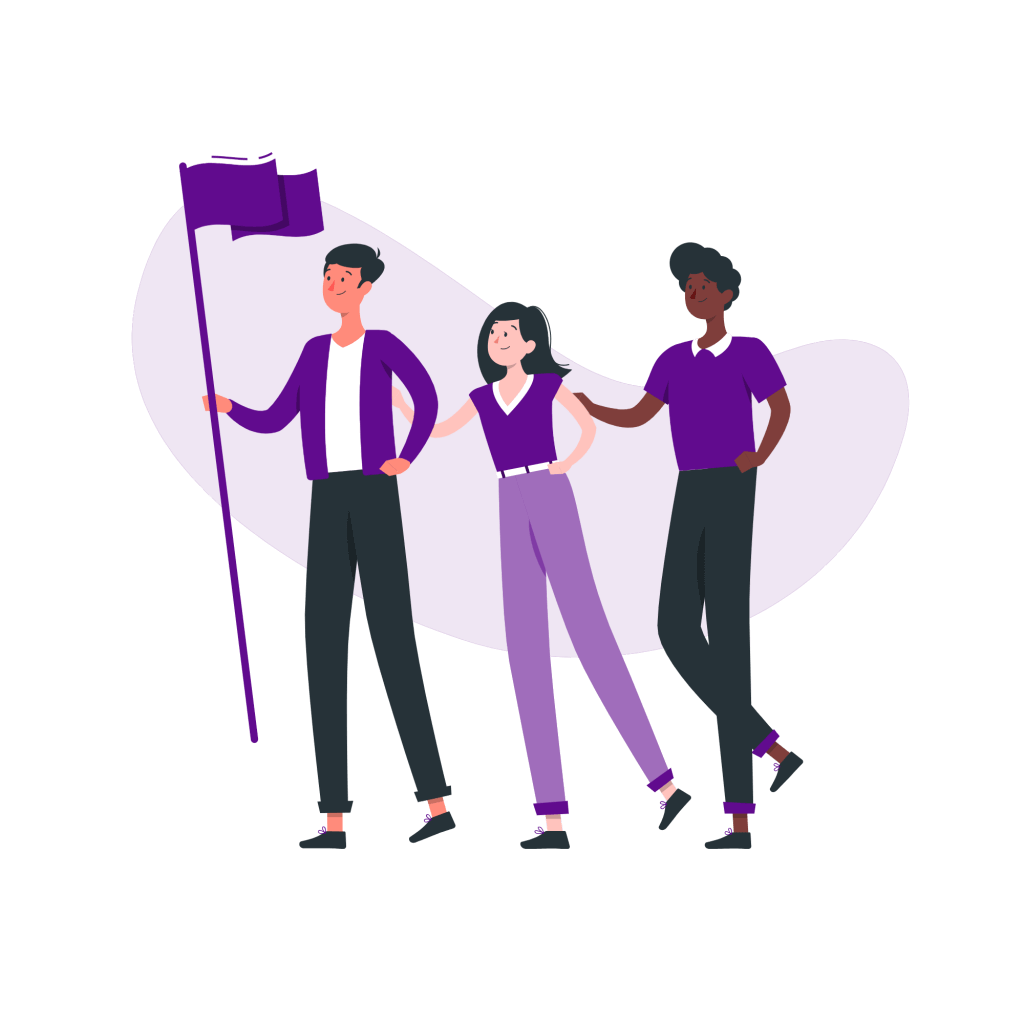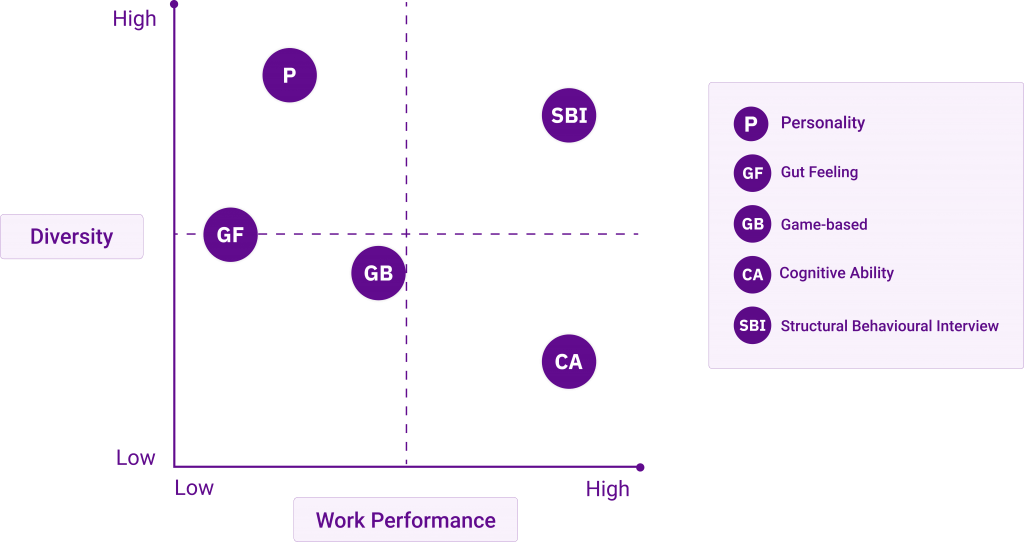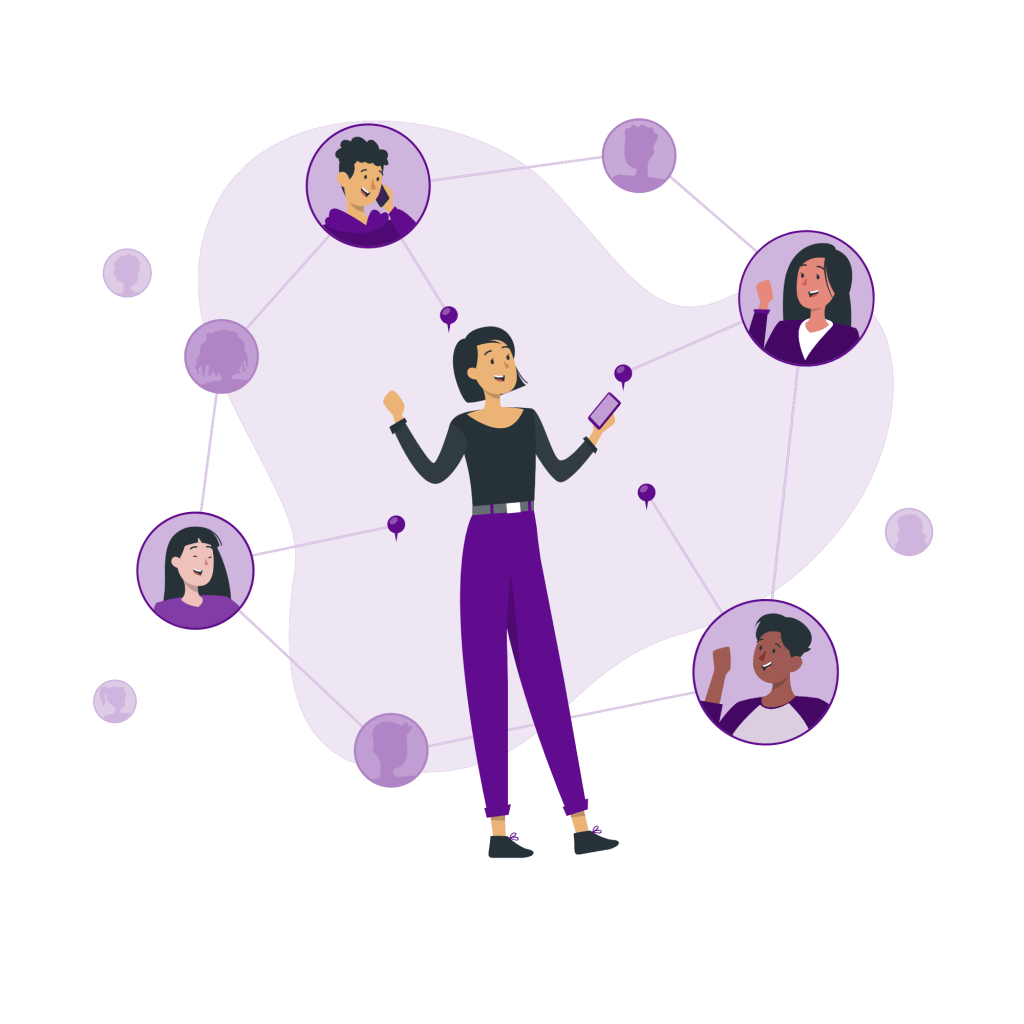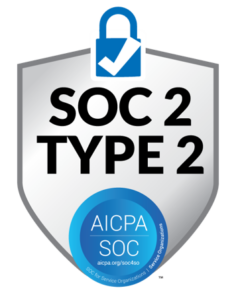Science for Diversity
Diversity and inclusion have become a goal that many organizations strive to achieve. Knockri was founded to address the issue of diversity in hiring and remove barriers for organizations. We enable you to implement candidate selection practices that predict performance and improve diversity.

OPENING THE BLACK BOX
Knockri’s Machine Learning and Ethical Science
Knockri’s approach to machine learning (ML) focuses on analyzing just the interview transcript of an interviewee’s responses. It does not analyze or detect any non-verbal or emotional cues as part of its analysis. Race, gender, age, ethnicity, accent, appearance, or sexual preference do not contribute towards an interviewee’s score.
Knockri uses sophisticated Natural Language Processing (NLP) models that only analyze the relevant behavioural content of each interviewee’s transcript, and how it relates to performance on-the-job.


Common Dangers When Applying ML for Hiring and Talent Management:
- NLP models learn from data fed into them. Any biases in the training data are generally compounded and made worse.
- Many vendors will train their models using ratings provided by human evaluators for each interview. Unfortunately, this perpetuates the same biases we want to remove.
Instead, Knockri’s NLP models take a different approach that is grounded in scientific theory, which are transparent and enable purely objective scoring.
Solving the Diversity Dilemma
Selection procedures are flawed when it comes to finding a balance between test validity and candidate diversity, demonstrating a diversity dilemma.
Cognitive ability assessments predict job performance but hinder diversity. Personality assessments can increase diversity but have a lesser relationship with job performance.
Eliminate Bias Without Compromising on Performance
- Existing cognitive or game-based assessments claim to promote diversity by eliminating bias. In reality these assessments create misleading results since they contain limitations for predicting job performance and increasing diversity.
- Knockri goes beyond “good psychometrics" and effectively drives DEI metrics for your organization.


Structured Behavioural Interviews Are Advantageous
These assessments predict performance equal to or better than cognitive assessments, but do not result in substantial subgroup differences.
Here are the most widely used digital selection procedures along with the expected subgroup differences for each
Fair Selection Procedures That Are Accessible to All
- While structured behavioural interviews are most accurate in predicting top diverse talent, they are traditionally very costly and time-intensive which makes them difficult to deploy at scale
- Knockri makes these assessments accessible with our automated behavioural identification and analysis system
- This makes it possible to deploy a well-designed structured behavioural interview at a fraction of the cost.

Removing Human Bias in the Hiring Process
Unstructured interview formats lead to bias and subjective forms of scoring. Here are some of the most common biases in interviews:
The tendency to use overall impressions to guide scoring rather than individual responses. This can result in similar ratings across different competencies that are measured.
The tendency to provide only high ratings across candidates. This reduces variability in scores making it more difficult to distinguish between candidates.
The tendency to remember only the first and last piece of information during an interview or the first and last candidates interviewed.
The tendency for first impressions to influence an interviewer’s subsequent judgments of a candidate in the rating process.
The tendency to favor candidates that display similar background, demographic, or attitudinal similarities.
Interviewer Training Efforts Are Limited
- While these efforts have pushed the needle, they do not eliminate bias from the hiring process.
- Knockri avoids all of these biases by fully automating a structured behavioural interview process from job analysis to scoring. Full automation ensures that none of the typical limitations of interviewer ratings are present in the assessment administration or scoring.





